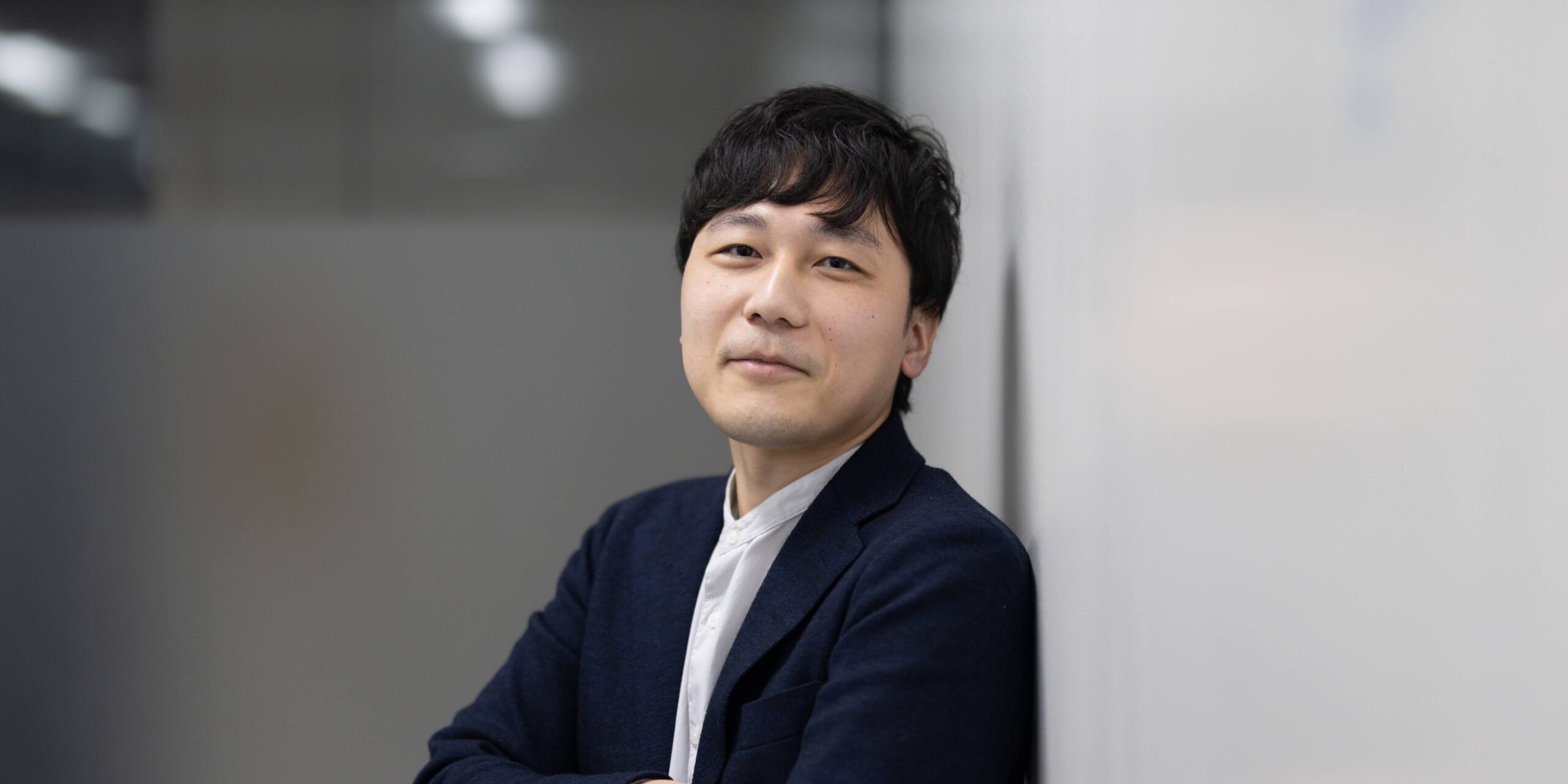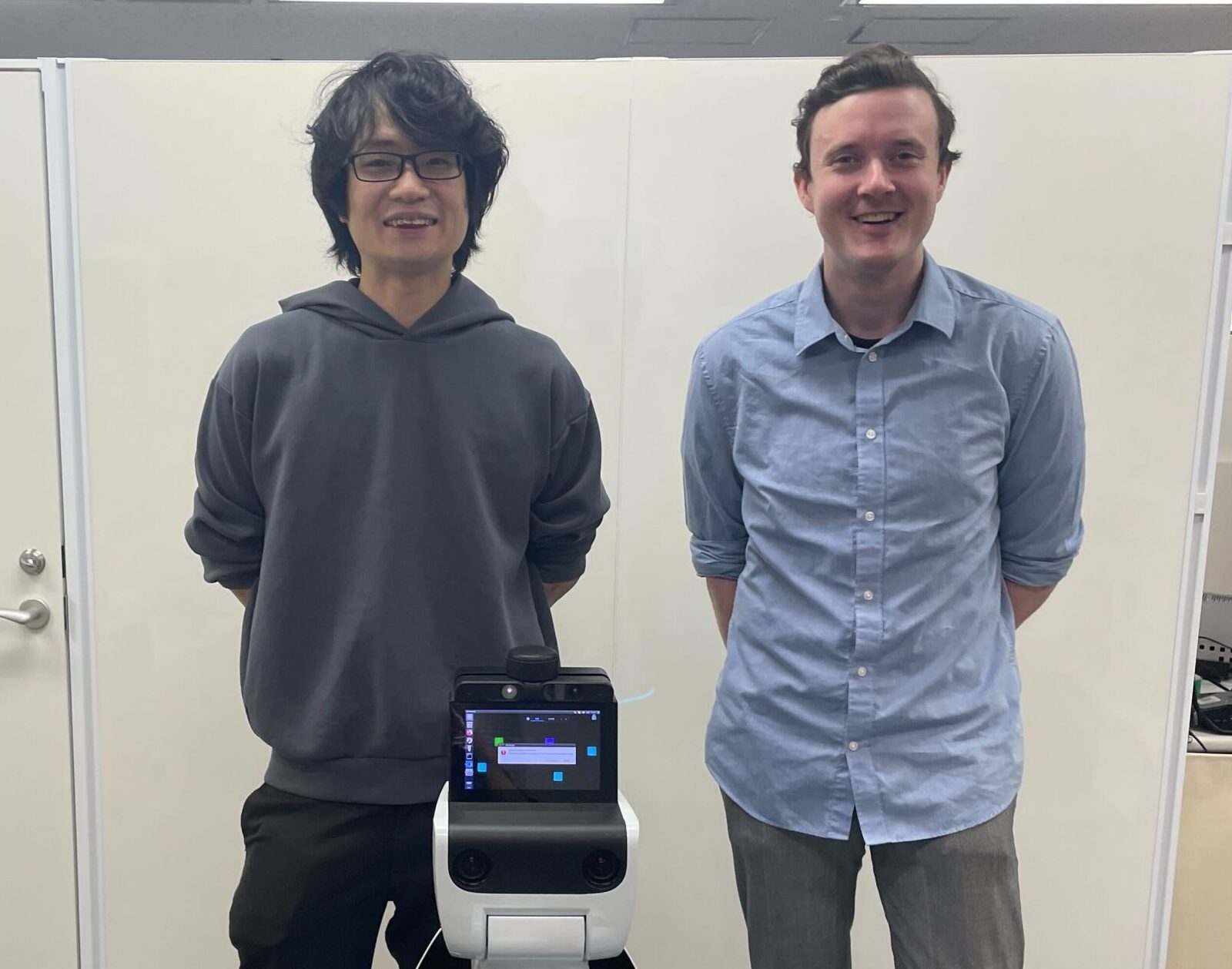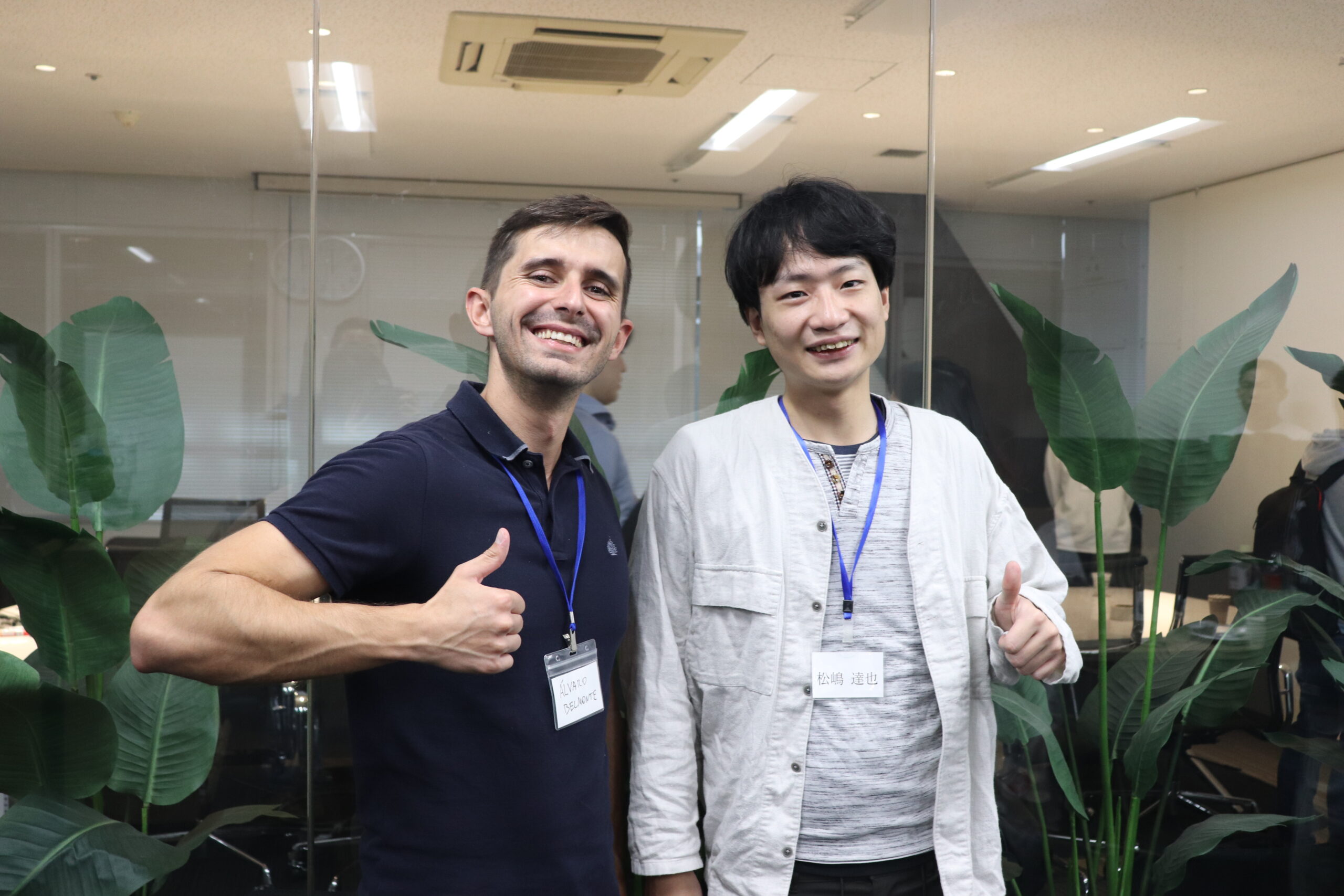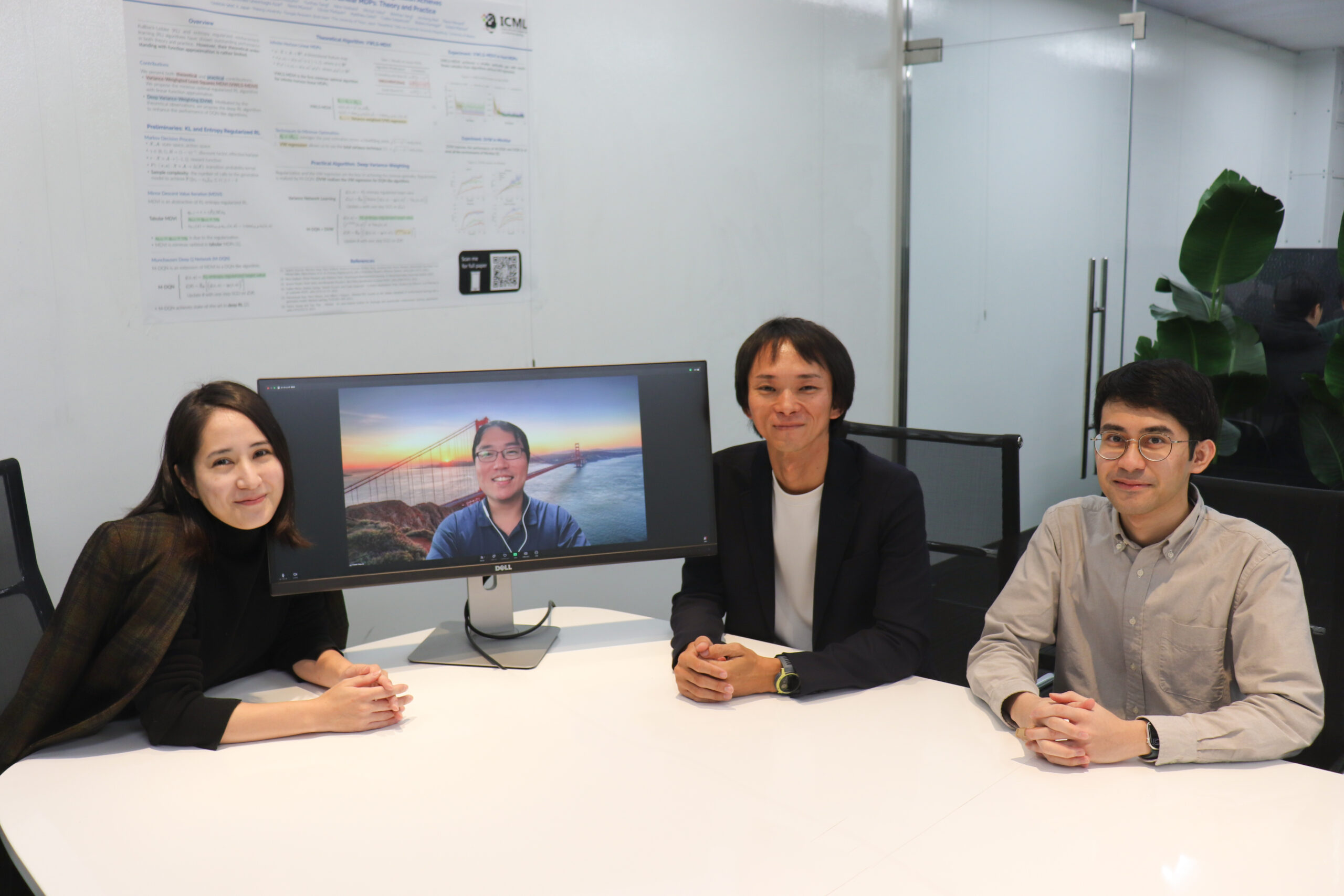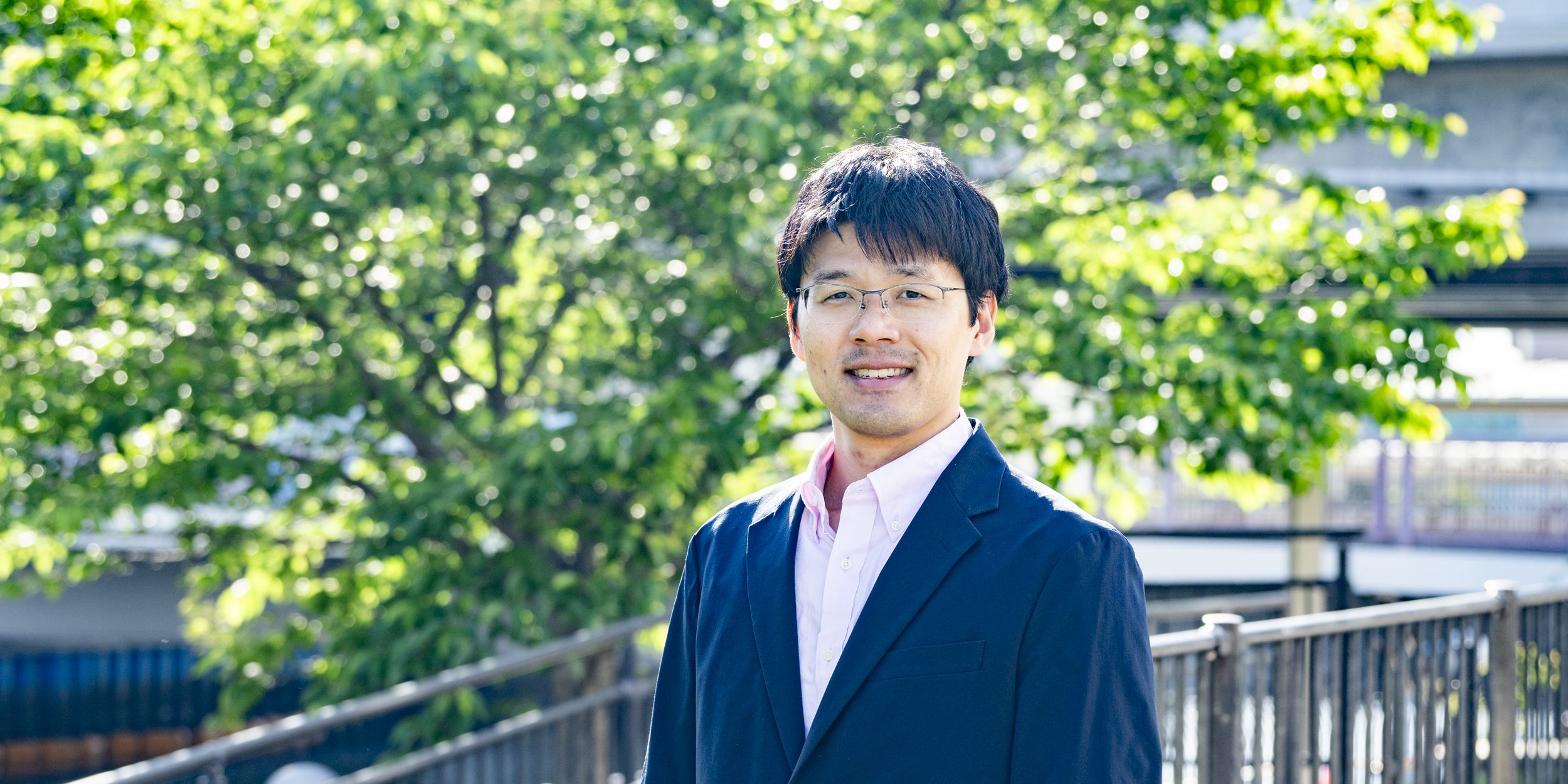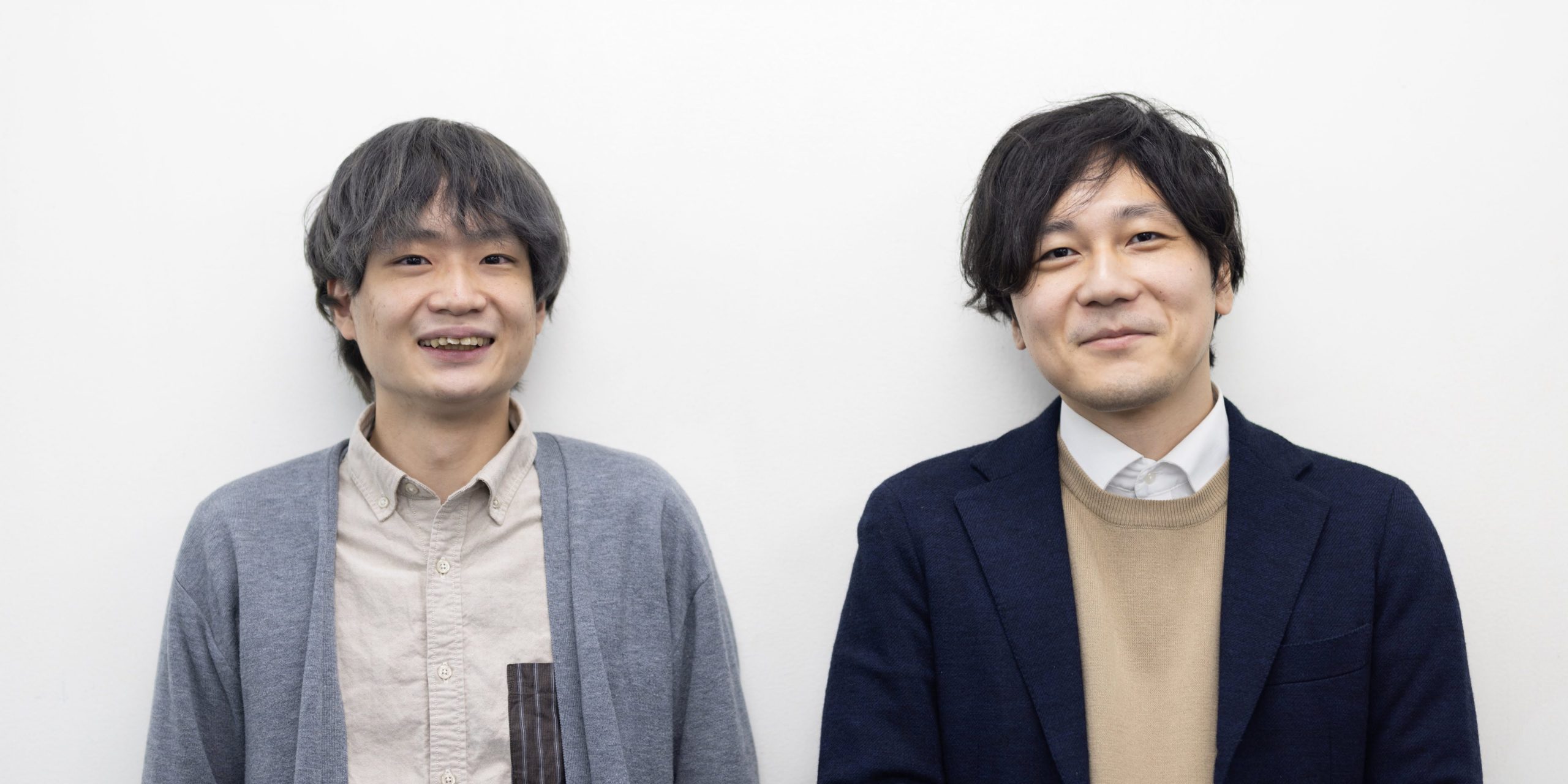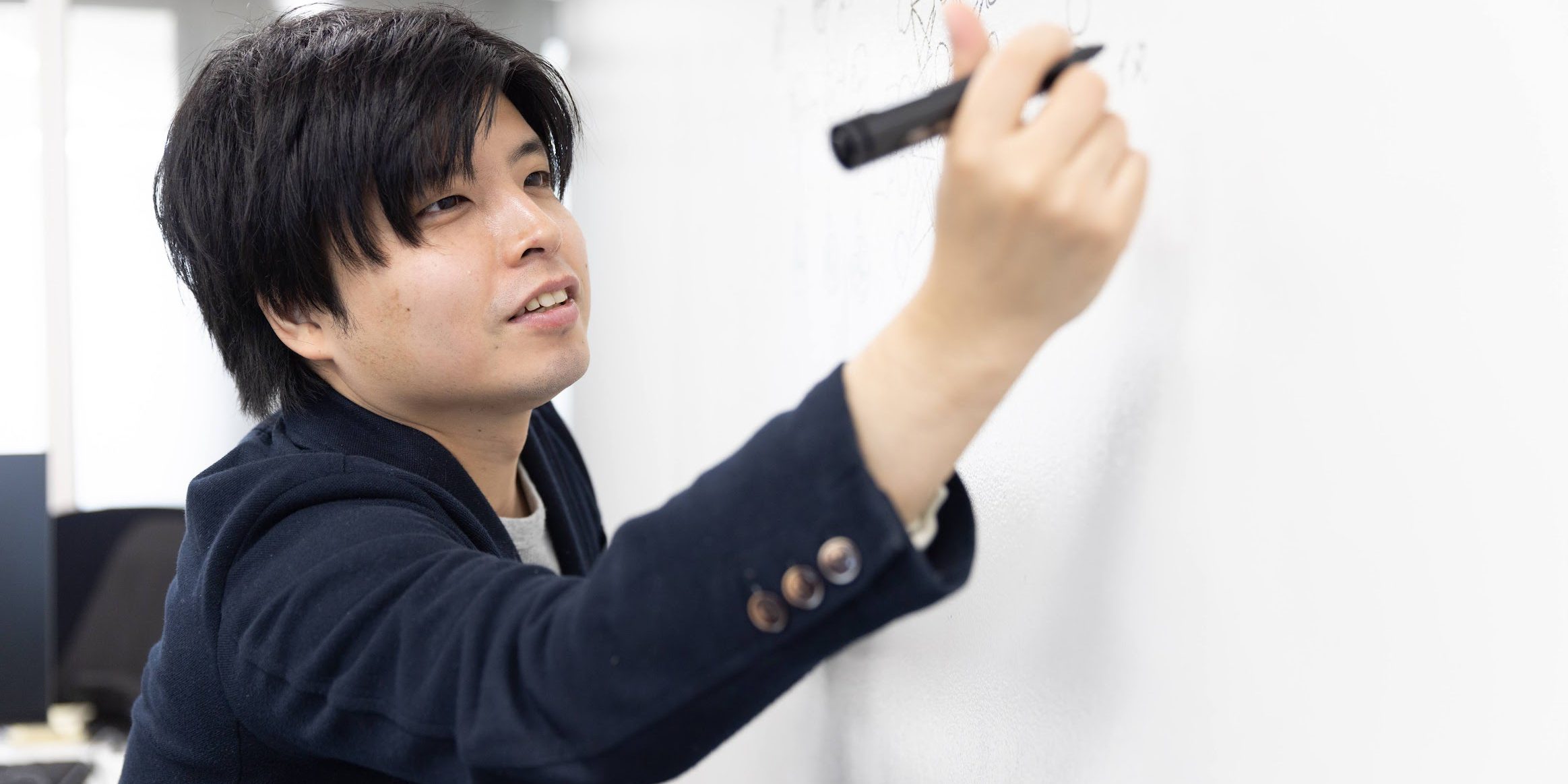Introducing Mr. Yusuke Iwasawa.
Dr. Iwasawa has been a member of the Matsuo Institute since the doctoral program, and after serving as a specially-appointed researcher, specially-appointed assistant professor, and specially-appointed lecturer, he began his research activities as a lecturer in 2022. In this article, we asked Mr. Iwasawa, who has been with the Matsuo Institute for nine years, about his research and the appeal of the Matsuo Institute.
(Postcards written in January 2024) Titles are as of the time of the interview in December 2022, and he is currently an associate professor.
Promotes a wide range of research from individual research to large-scale research in collaboration with engineering teams.
What kind of work and research do you do at the Matsuo Laboratory?
In terms of the nature of our work, it is not much different from what you might imagine as the work of so-called academia. Our main focus is on research, but we also provide education and guidance to students. However, there are various types of research, such as individual motivation-based research, top-down research projects, and research conducted in collaboration with engineering teams.
My recent personal research has focused on how can large models be efficiently utilized in new tasks? This is the main focus of my work. In the research area of machine learning, this is what is known as transfer learning, meta-learning, and out-of-distribution generalization. In particular, in light of recent trends showing the effectiveness of very large-scale models in various domains, we are conducting research on techniques (Test-Time Adaptation and Prompting) for efficiently adapting even large-scale models to unknown environments and tasks.
In addition to research conducted by individuals or a few people, there is also research conducted by teams while collaborating with engineering teams.
One of the factors driving research in learning by organizations such as GAFA is that, along with a good group of researchers, they are well equipped to conduct large-scale experiments. In order to promote high-impact research, it is necessary to examine areas that cannot be competed with just examining algorithm ideas, including data collection as a preliminary step in the research process.
Of course, it is not on the scale of a giant corporation, but we are able to promote large-scale research that would be difficult for an individual to achieve using a similar scheme, and I feel that we are blessed to be able to initiate and lead such research by our own researchers.
(Reference)
Toward the Realization of an Ecosystem on a Par with Silicon Valley: Interview with Yutaka Matsuo, President and CEO (Part 1)
Thoughts on Basic Research at the Matsuo Institute Interview with Yutaka Matsuo, President (Part 2)
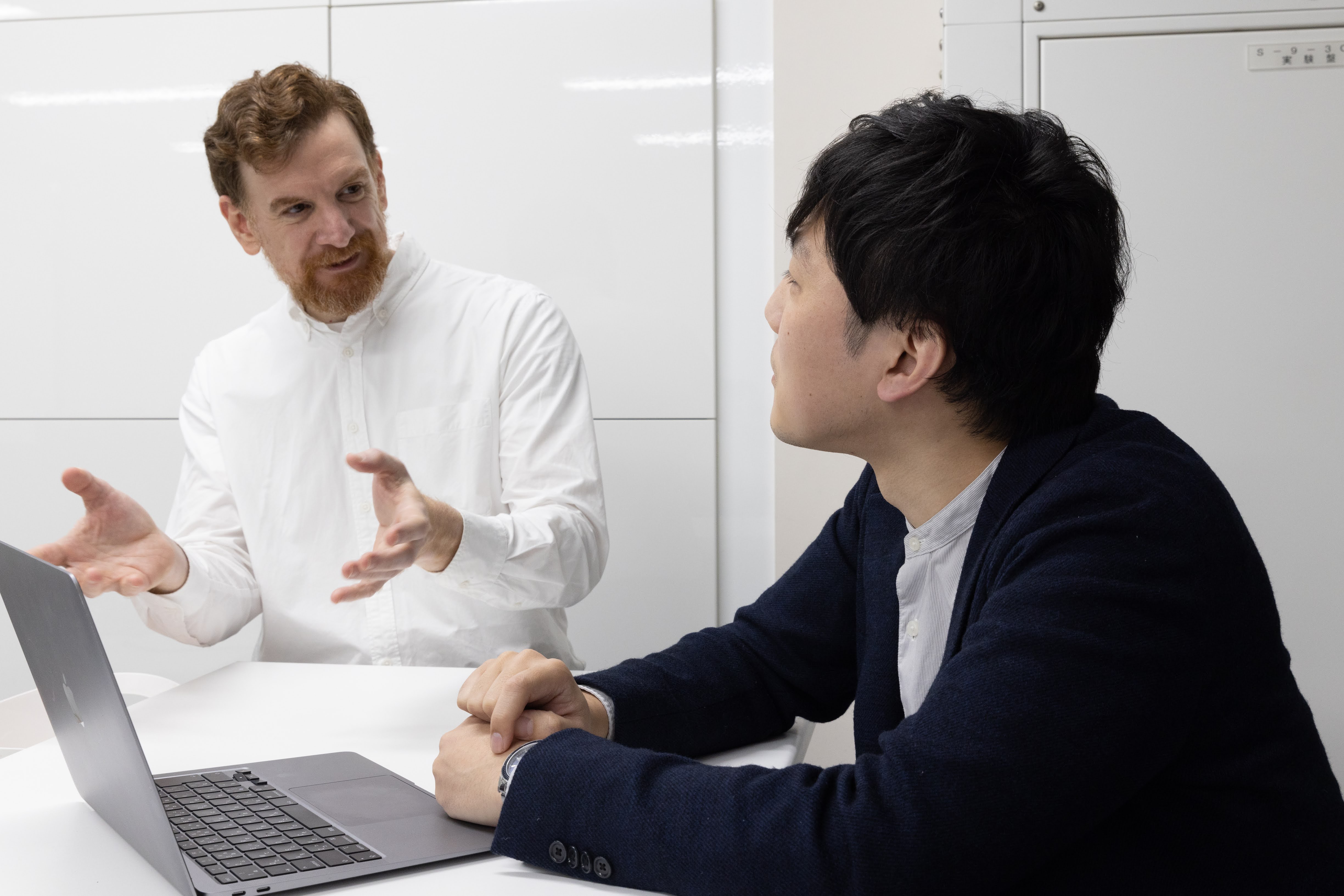
What are your other activities besides research?
One of our long-running activities outside of research is the Deep Learning reading group, which meets every Friday. This is a study group that meets every Friday to read the latest papers on Deep Learning on a rotating basis, and has been ongoing since 2015. Now we have a variety of participants from different backgrounds, mainly graduates of Matsuo Institute’s lectures.
The translation of the book written by Dr. Ian Goodefellow and others, who are well-known in the area of deep learning, was also born from the activities of the above-mentioned round-reading group. We had a volunteer reading group right after the book was published, and one of the participants, Dr. Matsuo, said, “Why don’t you get the copyright and translate the book? I was still a doctoral student at the time, and I remember being very surprised at the speed of the translation. I was involved in both the translation and the overall supervision of the translation, and although I have more memories of how difficult it was in reality, I think it was a valuable experience.
In addition, I am also involved in courses on deep learning as a lecturer and administrator. I am also involved in student guidance, and in April, I was appointed from specially-appointed lecturer to lecturer, and I am also officially accepting students.
What made you decide to become an instructor?
The main reason was that we wanted to learn more about the university and to expand the number of undergraduate students we could take on as a laboratory.
Thankfully, every year many students requested to be assigned to the Matsuo Lab, but due to the number of slots available, we were only able to assign a few students.
Of course, affiliation is not everything, but we want to create as many opportunities as possible for those who are motivated to do research on deep learning and intelligence. I decided to take this position with the hope that I could increase the number of such people.
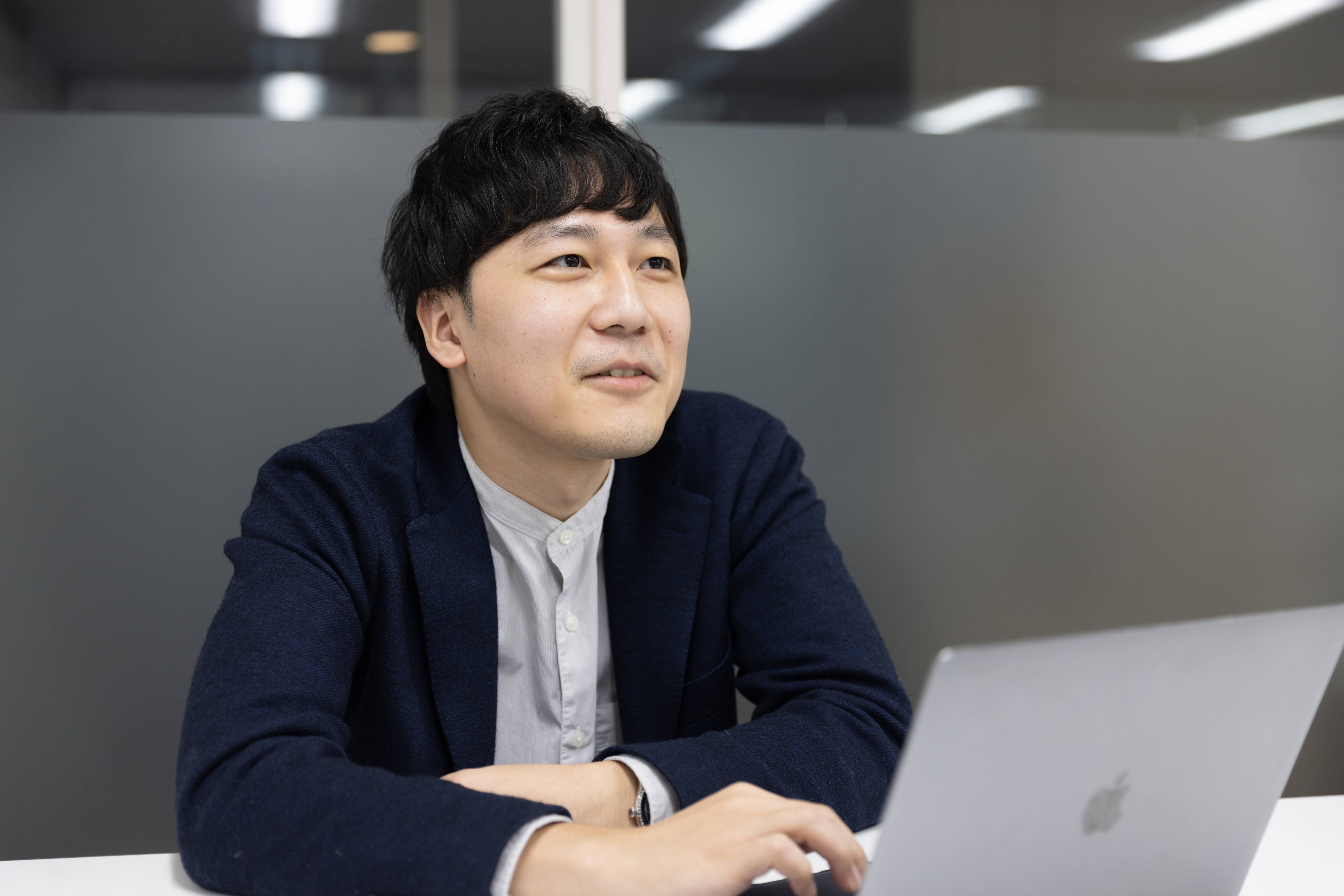
Machine learning research is an important topic with applications in all areas.
How did you come to join Matsuo Lab?
The starting point of my research was the application of machine learning to support people with disabilities at Sophia University. The research was more of an application-oriented research area, using sensors mounted on devices such as iPhones to collect the behavior of wheelchair users and visually impaired people, analyze the collected data using machine learning, and visualize where in the city dangerous behavior (such as falls and collisions) and near-misses that lead to such dangerous behavior occur based on the results of the analysis. The goal of the project was to create a map to visualize where in the city dangerous behaviors (e.g., falls and collisions) and near-misses that lead to dangerous behaviors are occurring.
Through this research, I was exposed to “machine learning” for the first time at that time. In fact, I was the only one doing machine learning in my laboratory at the time. It was around 2011, so the terms “neural network” and “deep learning” had not yet been so widely known.
Then, at a conference I happened to attend, my former academic advisor introduced me to Dr. Matsuo. I wanted to do more research on this technology itself, so I began my doctoral studies at the Matsuo Laboratory.
So you didn’t start out researching your current theme?
I don’t know if I am allowed to say this from the standpoint of the entire research team, but I personally was not strongly interested in “creating intelligence” from the beginning (I believe that this is a unique time to tackle the very challenging issue of the principles of intelligence as we experience the technological progress of deep learning). (At this point in time, I believe that this is a unique opportunity to tackle the very challenging issue of the principles of intelligence while experiencing the technological progress of deep learning).
I was originally interested in machine learning as a tool for solving problems because I was originally doing research on support for people with disabilities, which is more of an application I wanted to do. However, as I continued my research, the core problem remained how to adapt the learned models to new situations (new users and other environments). I also realized that this problem was not specific to the problem I was working on at the time, but was everywhere when applying machine learning.
In the end, we thought that looking at the problem from an abstract perspective would lead us to the same problem no matter which angle we cut, and we narrowed our awareness of the problem to the area of transition learning, which is now our main research topic.

In an environment of respect for researchers,
Promoting basic research with a view to long-term return to society.
Iwasawa-san, this is your 9th year at Matsuo Lab. What is the reason for staying at Matsuo Lab?
It is difficult to single this out because there are many reasons, but one reason is that basic researchers are respected, both in terms of work content and treatment and psychologically. I cannot say that I am not busy, but I feel that I have a great deal of time to devote to essentially important areas such as research and education. For example, the education component, which requires a great deal of effort to operate, is carried out very efficiently because there is a firm division of labor with the staff dedicated to lectures.
Many people may think that the Matsuo Institute has recently been associated with collaborative research and entrepreneurial education, and that it is more focused on applied research that is useful to society right now. Of course, we emphasize whether our research is actually useful to society in a broad sense, but I feel that we are an organization that also understands that the usefulness of research is a very long value chain story. Perhaps they focus more on more diverse and fundamental research than it appears from the outside.
In a more business sense, I think it is a great attraction to be able to discuss with Dr. Matsuo and see what he is thinking up close.
Having watched him closely for many years, I have the impression that Dr. Matsuo sees things on a different scale. It is a common phenomenon that one’s perspective becomes narrowed as one’s research progresses, and it is not uncommon for one’s research to be focused on solving a specific problem. If you do your research well, you can still get good papers, but I think it is very difficult to get results that have an impact.
In this respect, Dr. Matsuo comments from a very high perspective and in the first place, which often leads to a great expansion of thinking from that seed (although to be honest, it sometimes takes time to understand…) . I think this may be attractive to other researchers as well.
It is a way to broaden our vision, which tends to become narrowed,
A fundamental question that gives rise to the structure itself.
What exactly do you mean by “a high level of vision”?
Is it to question assumptions that are not confined to the research community, that no one questions, and to try to create the structure itself?
For example, in the area of machine learning, we formulate a problem and solve it as an optimization problem, and in the end, the most difficult part is the formulation. If you can formulate a good formulation, you can solve the problem. In this context, I think that most ordinary research is about “how to reduce the problem to a solvable problem setting” or, in other words, “how to find research within a solvable problem setting. Of course such research is important, but it is limited in principle. I think the great thing is to go back to the fundamental question, “Then let’s create a way to solve that principle problem.
Of course, it takes time to realize this kind of research. That is not to say that I am only talking in the abstract, but I have the impression that my thinking is multi-layered, going back and forth between the concrete and the abstract.

Dr. Matsuo’s high level of enthusiasm propagated andgreatlychanged his surroundings.
What kind of person is Dr. Matsuo to you, Mr. Iwasawa?
I often think it is quite educational.
I don’t know if “educational” is the right word, but he doesn’t tell us how to do things. However, they ask me quite a few questions. Most of the time, they ask me questions about things that I don’t really understand, or they give me suggestions from a different point of view than the one I am thinking about.
Originally, my image of education was more like hand-holding and teaching, but after meeting Dr. Matsuo, I realized that this is not the only kind of education there is.
I also have the impression that you are always seriously challenging yourself.
For example, I think there are many people in the world who feel a sense of stagnation in Japan or who want to do something, but I think there are very few people who are actually taking action and conducting research. But when Dr. Matsuo says, “I want to do something,” that is when he has already started.
If he really wants to do something, he will think of a way to do it, and he will do it. It may seem obvious when you put it into words, but I think it is an amazing thing.
I feel that this kind of serious approach to things has a great educational effect.
What would you like to do at Matsuo Lab in the future?
The overall mission of the Matsuo Lab’s basic research is to “engineer intelligence,” and I think it is important to move forward toward this major goal. Of course, it is a very big goal, and I do not think it will be easy, but now that deep learning research has advanced so much, I believe that the timing is right for us to have a large scope to take on this challenge.
I think some important research remains to be done, but I think one major issue is to understand what we have learned so far in deep learning and how to unify what we have learned so far, technological progress, etc., and how to unify them. However, there are still issues to be solved in terms of how to combine modules that already exist or what optimization problem should be used in order to combine them. Intelligence is not simply a matter of creating modules, but is an integrative process, so I think it is necessary to advance the theory and proof of this issue.
Personally, I think another important question is how to acquire data and the mechanism to keep learning continuously on new data. After all, recent results in deep learning have shown that an increase in the scale of data, models, and computation causes a large increase in performance, but I don’t think there is that clear a solution as to what kind of data should be collected. Technically, I think there is some research being done on mechanisms to proactively acquire new data and to continue learning from ever-changing data without collapsing. Also, I think it is necessary to think about this from a business perspective, just as OpenAI is continuously collecting and improving data by opening its GPT API to the public.
Lastly, please give a message to your future colleagues.
The appeal of the Matsuo Lab is that it continues to change. In fact, in the eight and a half years that I have been with the institute, it has undergone various changes, including a full-fledged shift from web-based research to deep learning research, the launch of several endowed courses, and the opening of the School of Metaverse Engineering, and has grown as an organization. Making changes is challenging, but it also creates opportunities. I also believe that we are now in a situation where the foundations are being put in place to promote research with a long value chain. I would like to invite people who are willing to take on difficult problems, whether in research or business, to join us.
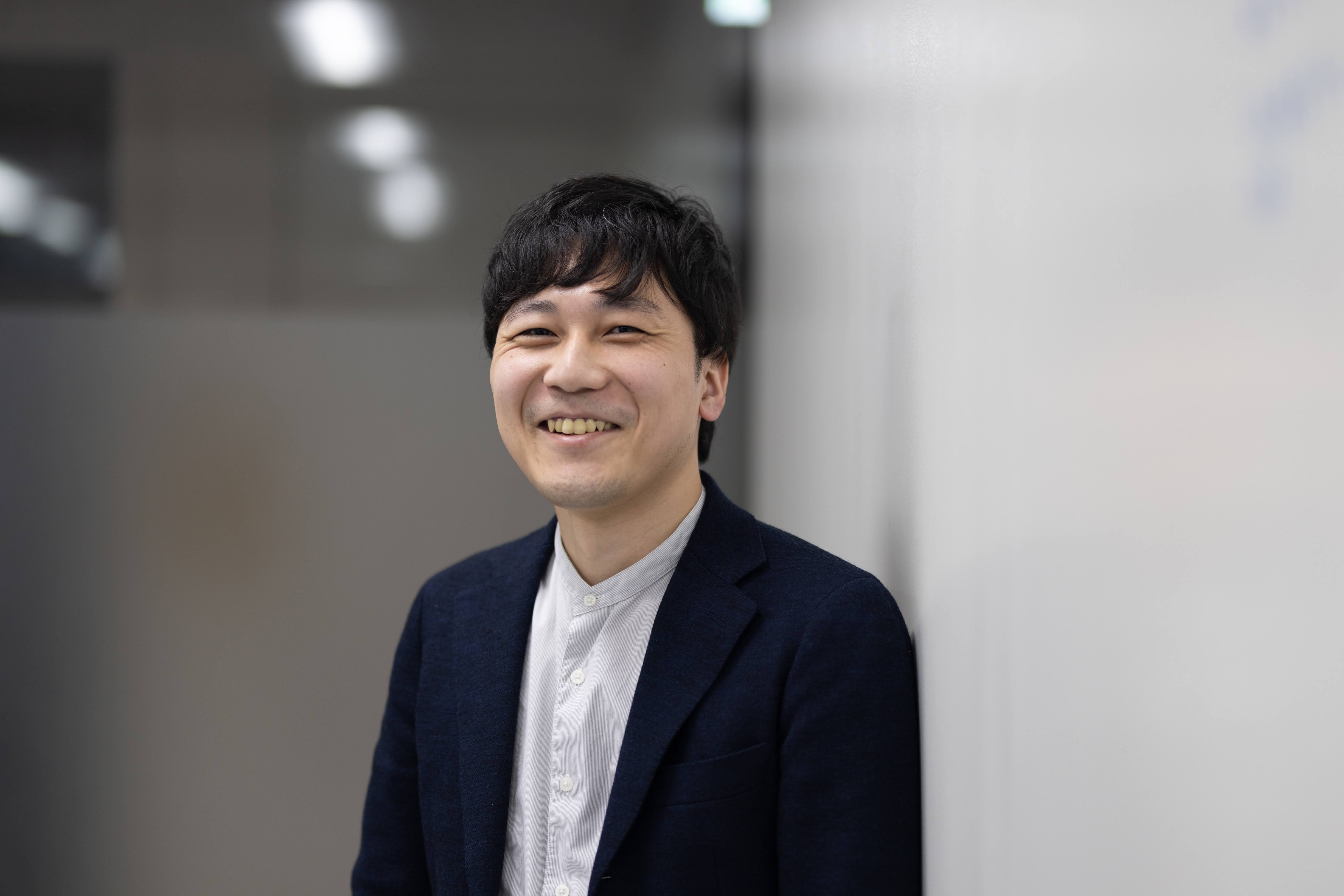
(Self Introduction) Yusuke Iwasawa / Lecturer, Matsuo Laboratory, The University of Tokyo
career
- Mar 2014 Completed graduate studies in Informatics, Graduate School of Science and Engineering, Sophia University
- Mar 2017 Completed graduate studies, Graduate School of Engineering, The University of Tokyo
- Apr 2017-Jun 2018 Specially Appointed Researcher, Graduate School of Engineering, The University of Tokyo
- July 2018-November 2020 Specially Appointed Assistant Professor of the same
- Dec. 2020-Mar. 2022 Specially Appointed Lecturer of the same
- April 2022-Present Lecturer of the same
(one’s) (special) field (of study)
- Transfer learning, deep representation learning, deep learning applications
Awards
- Best Student Paper Award at Web Intelligence 2019,.
- National Conference on Artificial Intelligence Excellence Award, National Conference on Artificial Intelligence Student Incentive Award
- MIRU Excellence Award, etc.
Other Activities
- Lecturer of “Deep Learning Fundamentals,” “AI Management Endowed Chair,” “World Models and Intelligence,” etc.
- Supervised translation (compilation of translations) and shared translation of “Deep Learning
